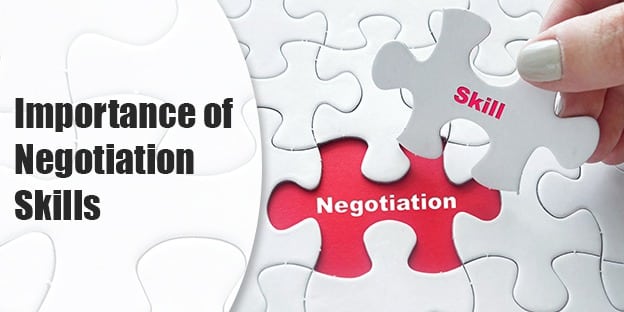
Ever went street-shopping and bargained with the seller to finally come down to a price that is a fair deal for both of you? – well that’s a simple case of negotiation.
- Two kids arguing over who gets to play the swing first.
- An employee making a suggestion to his manager
- A couple deciding what to do on their anniversary
- A sales representative trying to arrange an appointment, All these are also examples of negotiation.
Negotiation then is a method by which adjustment or compromise is reached while avoiding quarrel or conflict. It is a process of settling differences through mutual give and take – a skill that comes extremely handy in both, business and personal life. It is in fact, one of the most desirable life skills that can be acquired by any individual.
Schedule a call with a Pragati Leadership expert to discuss how we can support your strategic objectives.
Schedule your CallIn business, negotiation skills are particularly important in both informal day-to-day interactions and formal transactions such as negotiating conditions of sale, lease, service delivery, and other legal contracts. Whether you are seeking project resources, deciding on a new hire’s salary, or inking a high-stakes deal for your company, good negotiations contribute significantly to business success. Someone with ‘killer’ negotiation skills is always sought after by passionate employers looking to expand their business. Even though this skill can be an inherent character trait with some people, for many others, it has to be developed. Negotiation skills training is all about developing the skill and tuning the performance of executives to become an efficient negotiator – a quality of an efficient leader.
The 3 common types of negotiator personalities you will come across
If we have to categorize the negotiation styles, there would primarily be 3 tonalities – aggressive, passive, and assertive.
Aggressive negotiators, as the name suggests, adopt an attacking stance when communicating with others. They may get slightly overboard while convincing their point to the extent that it might destroy the negotiation altogether.
Passive negotiators on the other hand are the exact opposite. They are low in confidence, are submissive to other’s opinions, and display very little resistance to ideas imposed by the others. Their own views can be very ambiguous as their energies are more invested in avoiding an argument. Such a style of negotiation does not work in business.
The moderate path then is to adopt an assertive style of negotiation. Assertive negotiators are confident yet considerate who are better at keeping up with the discussion and actually work towards a mutually beneficial outcome. With a strong & steady voice, they support their arguments with facts and data and never directly criticize or blame the opposite party in a conversation. This is what corporate trainers at Pragati Leadership teach you to become in their leadership development programs.
How to achieve the best Negotiation skills
The art of ‘negotiation’ is rooted in the study of human behavior and is applicable in all life situations. In business, you need effective negotiation skills training to succeed in the world today. To attain the best negotiation skills training you need an experienced and certified program that can help you sharpen your skills to the core. Pragati Leadership is one such leading and trusted leadership training institute that offers an online negotiation skills training program that gives you the opportunity to study negotiation techniques from where it’s convenient for you. Contact Pragati Leadership today to experience a wave of change in your personal and professional life!
Share on Social Channels
Our Categories
Categories
- Behaviorial (7)
- Blog (262)
- Certified People Manager Program (3)
- Coaching (8)
- Corporate Trainers (7)
- Developing Collaboration (12)
- Emotional Intelligence Training (12)
- Executive Leadership Program (29)
- First Time Manager Training (12)
- Growth Mindset Course (3)
- Inspirational Leadership (17)
- Inspiring and Successful Leadership Awards (16)
- Leadership Awards (37)
- Leadership Development (123)
- Leading Virtual Teams (6)
- Management Development (29)
- Marketing (2)
- Negotiation Skills Training (7)
- Organizational Transformation (24)
- Others (24)
- Stakeholder Management (3)
- Strategic Leadership Development Program (4)
- VUCA Leadership (2)
- Wholesome Leadership (23)
- Women Leadership (15)
Recent Insights
“In the past a leader was a boss. Today’s leaders must be partners with their...
Ask anyone who’s ever led a team, and they’ll tell you this: managing people isn’t...
“Executive Presence is a mix of mindset, skills, and behaviors”. Want to be perceived as...
There’s a strange assumption many people make about senior leaders: once someone has a couple...
“The number one problem first-time leaders face is failing to understand that leading requires entirely...
